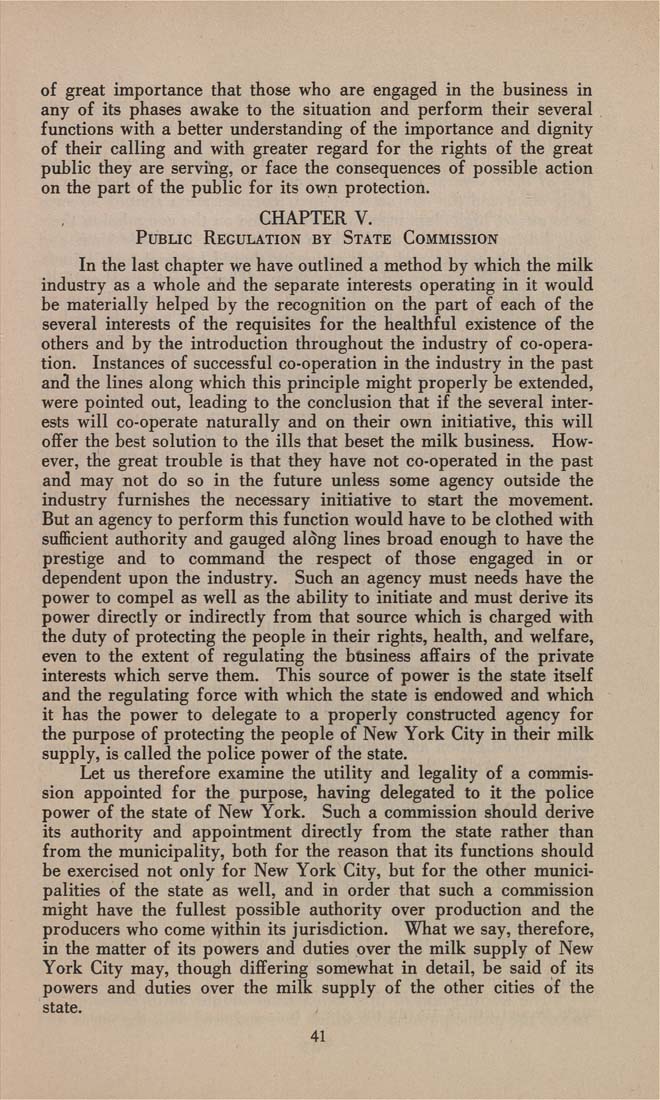of great importance that those who are engaged in the business in
any of its phases awake to the situation and perform their several
functions with a better understanding of the importance and dignity
of their calling and with greater regard for the rights of the great
public they are serving, or face the consequences of possible action
on the part of the public for its own protection.
CHAPTER V.
Public Regulation by State Commission
In the last chapter we have outlined a method by which the milk
industry as a whole and the separate interests operating in it would
be materially helped by the recognition on the part of each of the
several interests of the requisites for the healthful existence of the
others and by the introduction throughout the industry of co-opera¬
tion. Instances of successful co-operation in the industry in the past
and the lines along which this principle might properly be extended,
were pointed out, leading to the conclusion that if the several inter¬
ests will co-operate naturally and on their own initiative, this will
offer the best solution to the ills that beset the milk business. How¬
ever, the great trouble is that they have not co-operated in the past
and may not do so in the future unless some agency outside the
industry furnishes the necessary initiative to start the movement.
But an agency to perform this function would have to be clothed with
sufficient authority and gauged aldng lines broad enough to have the
prestige and to command the respect of those engaged in or
dependent upon the industry. Such an agency must needs have the
power to compel as well as the ability to initiate and must derive its
power directly or indirectly from that source which is charged with
the duty of protecting the people in their rights, health, and welfare,
even to the extent of regulating the btisiness affairs of the private
interests which serve them. This source of power is the state itself
and the regulating force with which the state is endowed and which
it has the power to delegate to a properly constructed agency for
the purpose of protecting the people of New York City in their milk
supply, is called the police power of the state.
Let us therefore examine the utility and legality of a commis¬
sion appointed for the purpose, having delegated to it the police
power of the state of New York. Such a commission should derive
its authority and appointment directly from the state rather than
from the municipality, both for the reason that its functions should
be exercised not only for New York City, but for the other munici¬
palities of the state as well, and in order that such a commission
might have the fullest possible authority over production and the
producers who come \yithin its jurisdiction. What we say, therefore,
in the matter of its powers and duties over the milk supply of New
York City may, though differing somewhat in detail, be said of its
powers and duties over the milk supply of the other cities of the
state.
41
|








